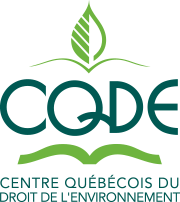The Ministère de l’Environnement et de la Lutte contre les changements climatiques (MELCC) was aware of the quantities of water withdrawn by each bottling company, but the companies invoked commercial secrecy to refuse to disclose these quantities to the general public, thus fostering a culture of secrecy that has undermined integrated, participatory management of the resource.
In 2018, partner lawyers from the Centre québécois du droit de l’environnement (CQDE) and Eau Secours took steps to obtain access to this information, a request which the MELCC refused. The decision of the Commission d’accès à l’information rendered in 2020 accepted the arguments presented by the MELCC and the major water extractors and refused to grant access to the requested information.
The case was appealed to the Court of Quebec. In a decision handed down in 2022, the Court upheld the decision of the Commission de l’accès à l’information and the bottlers’ interpretation: commercial secrecy protected the information requested by the CQDE’s partner lawyers and Eau Secours.
“Access to information is an essential pillar of environmental law. The public expects to obtain this basic information on water,” Marc Bishai, CQDE partner lawyer.
Objectives and interests
The Civil Code of Québec gives water the special legal status of a “common good,” while the Act to affirm the collective nature of water resources and to promote better governance of water and associated environments (hereinafter referred to as the Water Act) establishes that it is part of the “common heritage of the Québec nation.” In principle, therefore, water belongs to everyone. By refusing to make this information public, Quebec was prioritizing private commercial interests over the public’ right to be informed about the impacts on water. This approach is problematic for a number of reasons, not least because sustainable water management in Quebec is based on an integrated, participatory approach that cannot be effectively implemented without access to the relevant data.
Our actions
Following the Court of Quebec’s decision, the two organizations launched a mobilization campaign in May 2022, rallying thousands of citizens, to demand that the legal framework be changed so as to make the quantities of water extracted a matter of public knowledge.
In response to our mobilization efforts, on June 1, 2022, the National Assembly unanimously adopted a motion highlighting that “sustainable water management depends on transparency.”
In June 2022, it was the municipalities’ turn to become involved: the Vaudreuil- Soulanges regional county municipality (RCM) adopted a resolution asking the State for access to water information and inviting all municipalities to do likewise. The RCMs of Matawinie, Rouville, and Pierre-De Saurel, and towns and cities such as Montreal, Rivière-du-Loup, Lavaltrie, Rivière-Rouge, Sutton, Mont-Blanc, and Saint-Liboire followed suit.
In April 2023, the government tabled Bill 20, An Act to establish the Blue Fund and to amend other provisions, in the National Assembly. The bill is accompanied by two draft regulations concerning the payment of royalties and the mandatory declaration of water withdrawals by companies in Quebec.
On May 9, 2023, the CQDE appeared before a parliamentary committee and presented its brief on Bill 20, which included five recommendations to parliamentarians for improving the legislation. [Read our brief.] [Our intervention in parliamentary committee.]
The CQDE has also produced important comments on the two draft regulations concerning royalties and the mandatory declaration of water withdrawals. [Read our comments]
Results
Victory! In June 2023, the National Assembly passed the Act to establish the Blue Fund and to amend other provisions (Bill 20). The Act enshrines the principle of transparency for all information obtained under the regulations on royalties and the declaration of water withdrawals.
After several years of mobilization by numerous players in civil society, information on water withdrawals by companies in Quebec will finally be unveiled. As of January 1, 2024, this data will be made easily accessible to the public on the Ministère de l’Environnement website.
There are, however, important provisos to be considered, in terms of access to information, mandatory reporting, and water extraction charges. The CQDE will remain vigilant with regard to the implementation, application, and revision of this new framework, which is scheduled to be reviewed every five years. [Read our press release]
